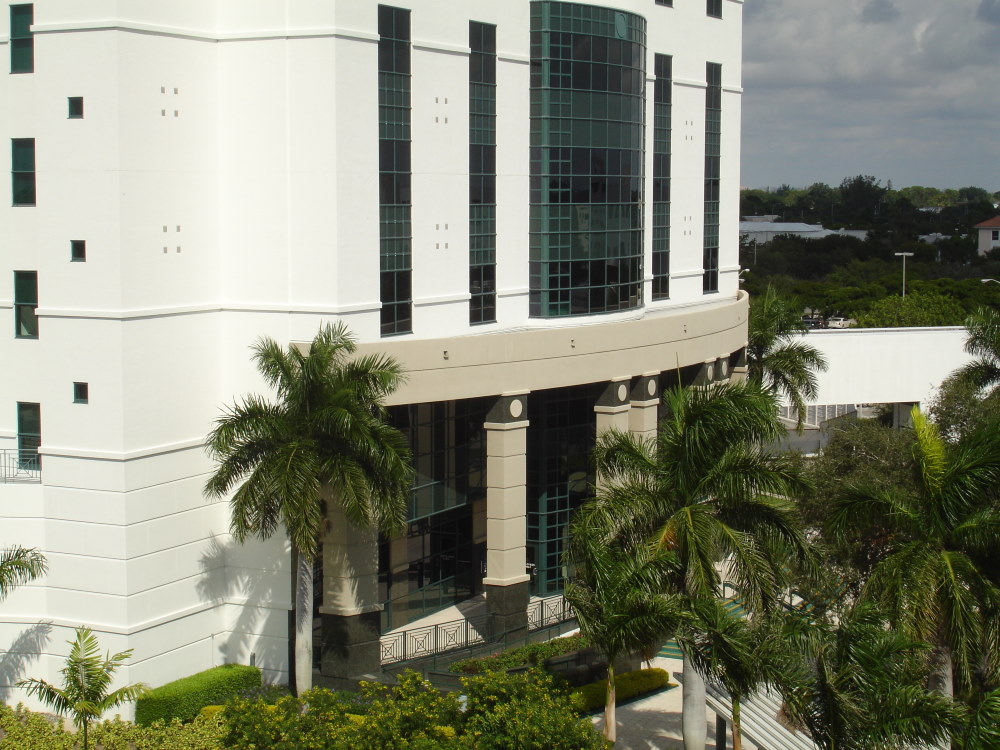Representing the accused in Naples, Florida since 1998.

Criminal defense lawyer, Naples, Florida
With more than 20 years of experience representing the accused in Naples, Florida, I can help you with your criminal case. Misdemeanors, felonies, DUI and other driving offenses, drug cases, or arrests for theft. And landlord/tenant law.
Arrested in Naples, FL?
My office is within walking distance of the Collier County Courthouse. I have defended criminal cases in Collier County since 1998. I have the experience needed to fight your case. I will personally handle your case every step of the way.
Misdemeanor procedure
In a misdemeanor case, the accused may be arrested and taken to jail, or may be given a notice to appear in court. Of those arrested, some will have a bond based on the booking sheet, and can bond out that same day, so long as they don't have felony priors. People arrested for battery charges, especially domestic violence battery, must remain in the jail overnight and will appear before the judge the next day, even if the next day is a weekend or holiday. The booking report in these cases will say bond is SBJ, "set by judge." The next-day court is referred to as First Appearance, or 24-hour court.
First Appearance
The judge at First Appearance will review the booking sheet for probable cause, and once PC is found, will set a bond. Bonds are higher for people with prior records and for people who appear to be flight risk, meaning a person with few ties to Collier County, Florida. The judge at First Appearance will also consider conditions of release from jail on bond or pre-trial release. Usually in battery cases, the judge will order a no-contact order with the alleged victim. If the alleged victim wants to have contact with the accused, the alleged victim can attend First Appearance court and request that the judge not impose a no-contact order. In the absence of the alleged victim, no-contact and no-trespass orders are routinely issued by the judge.
The accused appear in First Appearance court by video from the jail. The judge and the prosecutor remain in the courthouse, with the public defender appearing with the inmates on the jail side. Court interpreters are provided for any languages needed, either in person, or by the judge phoning a language line.
Misdemeanor arraignment
Whether arrested or given a notice to appear, both cases go to misdemeanor arraignment. On TV, we often see the accused standing next to the defense lawyer in court, and the judge asks, "How does the defendant plead?" This TV procedure does not happen in Naples, FL. Common practice for criminal defense lawyers in Naples, FL is to file document with the court that includes a notice of appearance, a plea of not guilty, a waiver of arraignment, and a discovery request. As the arraignment date approaches, the Clerk, seeing the plea of not guilty and waiver of arraignment, will cancel the arraignment date and move the case to a pre-trial conference (jury trial track), or a non-jury trial pre-trial date. Cases such as domestic violence battery or petit theft go to jury trial tracks, while charges like driving without a valid license go to a non-jury trial track. Defendants who never bonded out of jail after a misdemeanor arrest, have their own jail arraignment court, where they appear by video from the jail and are given the opportunity to resolve their cases with a plea of no contest. (No one enters a plea of guilty in Collier County when they resolve a case. No contest is how people accept plea offers to resolve their case.)
Discovery process
The discovery process refers to the sharing of reports, names of witnesses, photos & videos with the accused. If the defendant opts in to the discovery process, the accused has a reciprocal obligation to share a defense witness list and objects or videos that the defense plans to use at trial. The State's obligation begins after the arraignment passes and charges are filed. The State's discovery obligation is broader than the defense's obligation. For example, the State must share all evidence, including all videos. The defense only has the obligation to share evidence that the defense plans on using at trial. In cases like DUI, police dash-cam and body-cam videos are very important evidence that must be reviewed.
Pre-trial conferences
The accused usually does not attend pre-trial conferences. The defense lawyer attends and usually tells the judge one of there things: (1) Ready for trial, (2) We need a continuance, or (3) We have a negotiated plea. Criminal defense lawyers often ask for more time because they are still working on getting all the State discovery, such as videos, or based on the State's evidence shared in discovery, they have a motion to suppress filed and scheduled.
Misdemeanor diversion
Some criminal charges can be resolved with a diversion program. With diversion, the accused completes certain specific conditions, which may include community service or a substance abuse evaluation, or a domestic violence class, and the State drops the charges.
Trial
Most cases are resolved with some kind of negotiation, plea bargain, dismissal, or diversion. The cases that can't be resolved go to trial. Some misdemeanors are bench trials, meaning there is no jury, other cases go to trial with a jury that determines if the State proved the charges beyond a reasonable doubt.
Need to remove a guest (or family member) from your house?
Family member arrested for domestic violence in Naples, FL?
Car stuck in tow yard after arrest?
Need to evict a tenant?
Do the police want to question you?
Arrested for DUI in Naples FL?
Abogado en Naples que habla Español.
Need a writ of possession after mortgage sale?
Florida Ethics Commission defense lawyer